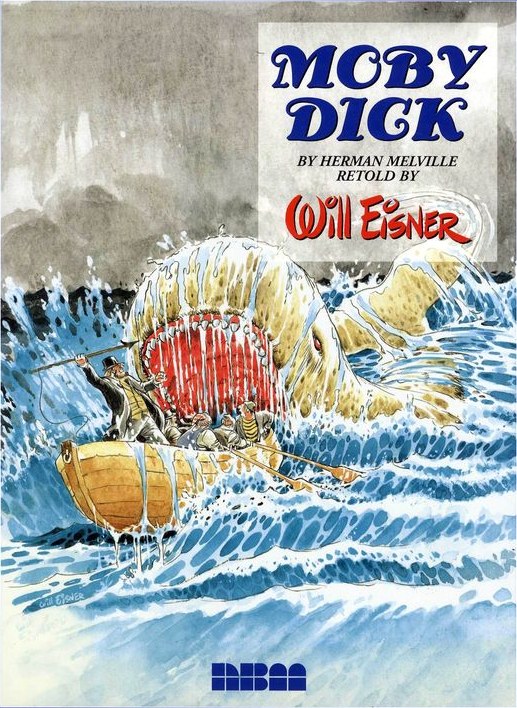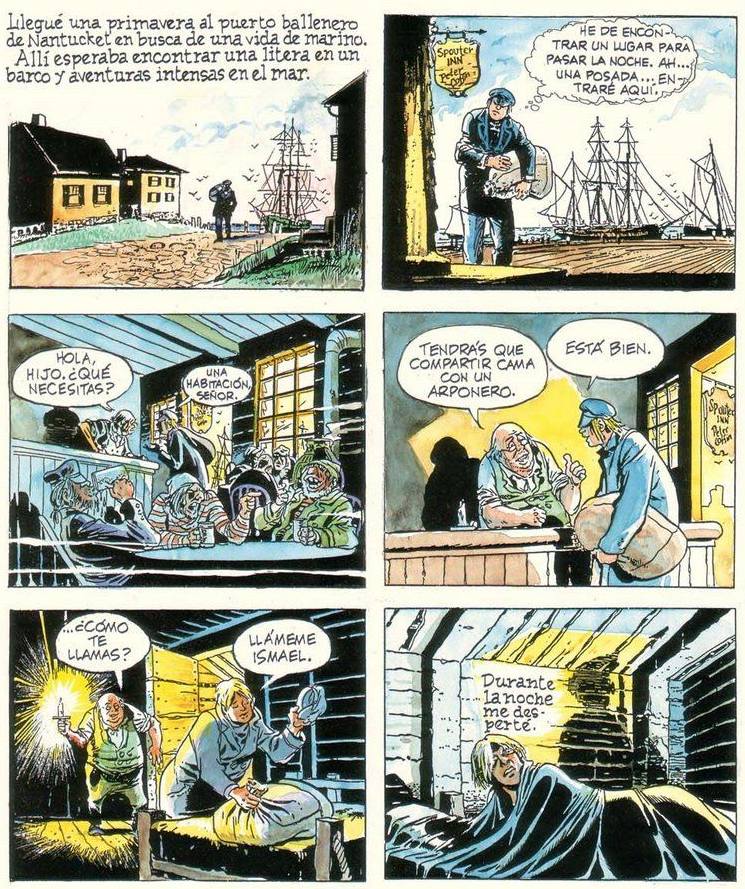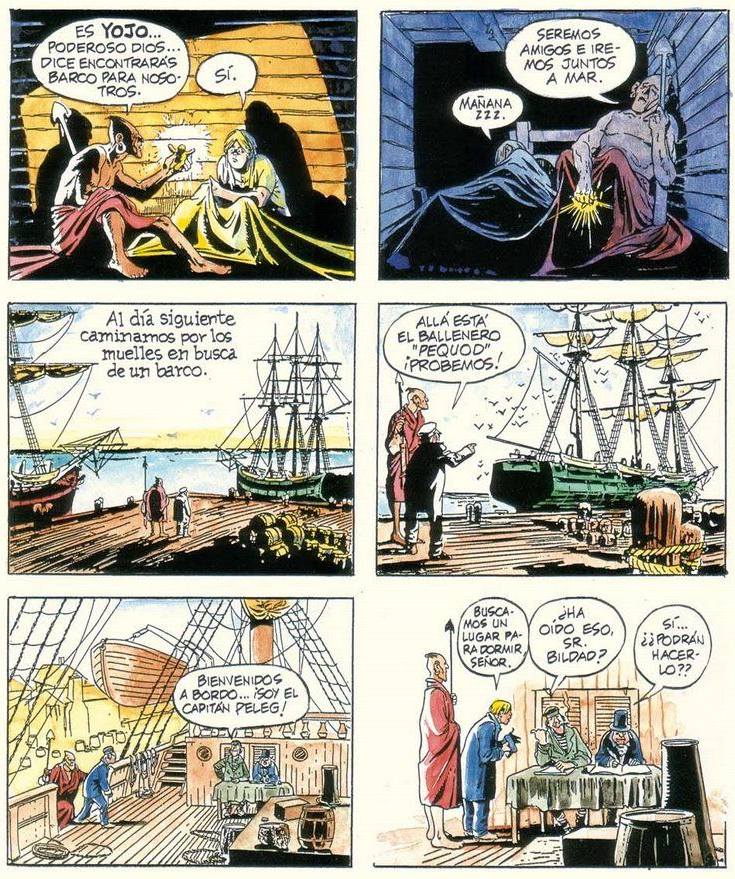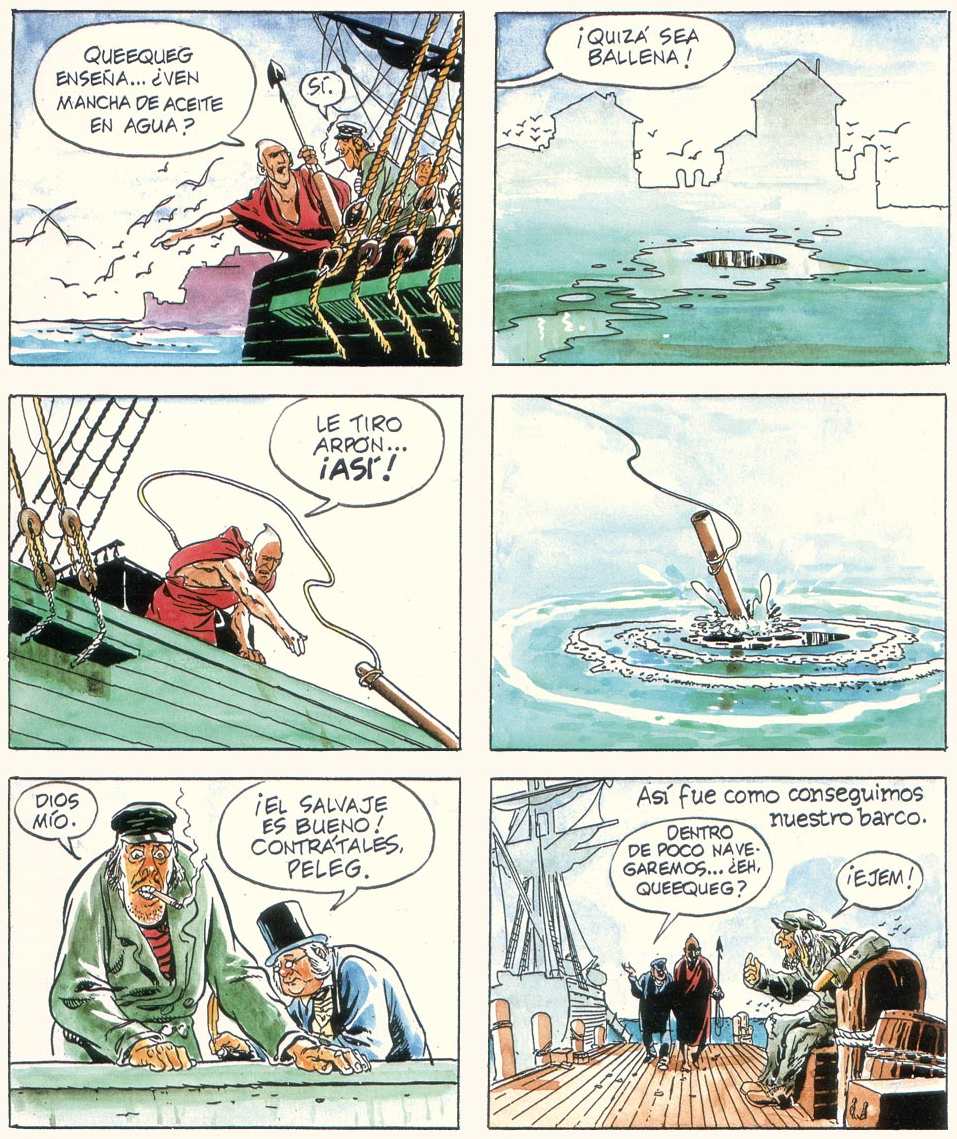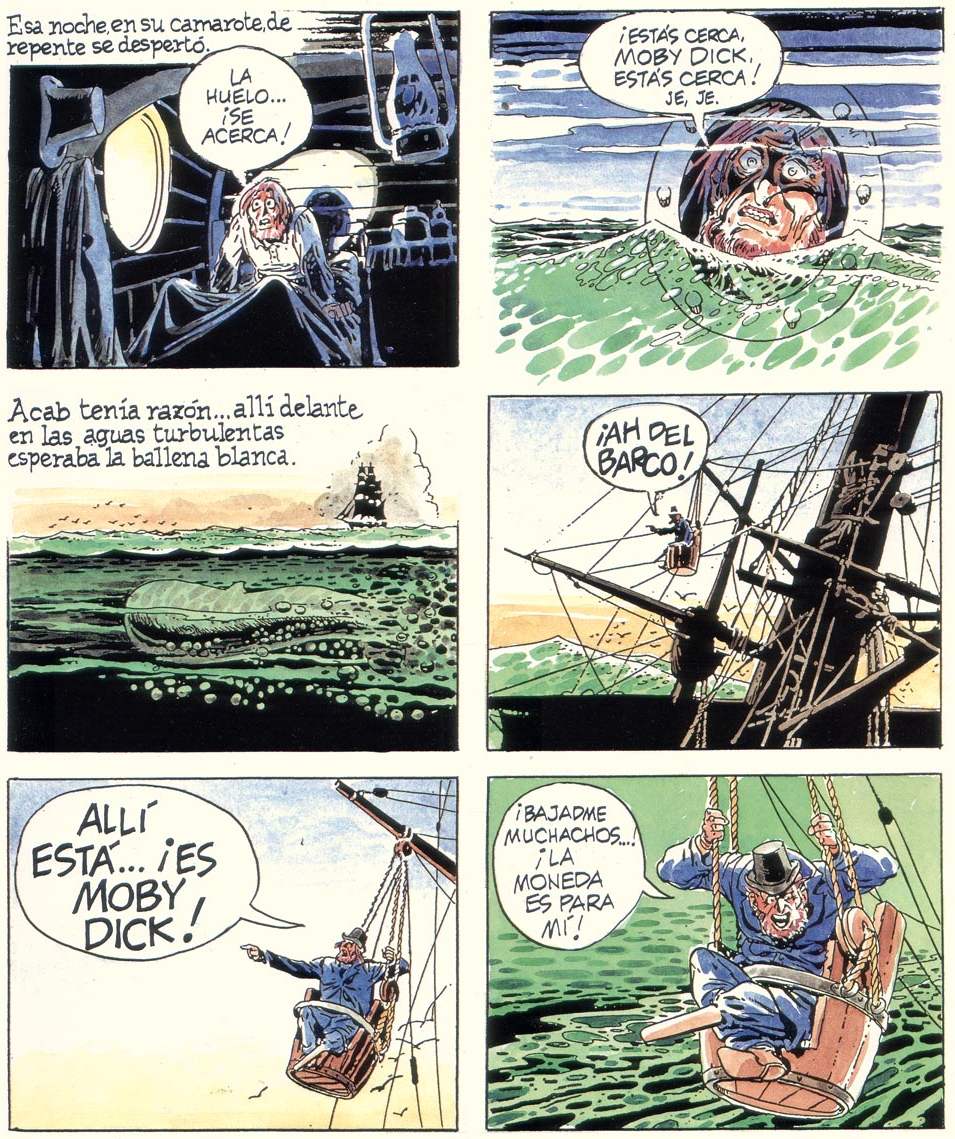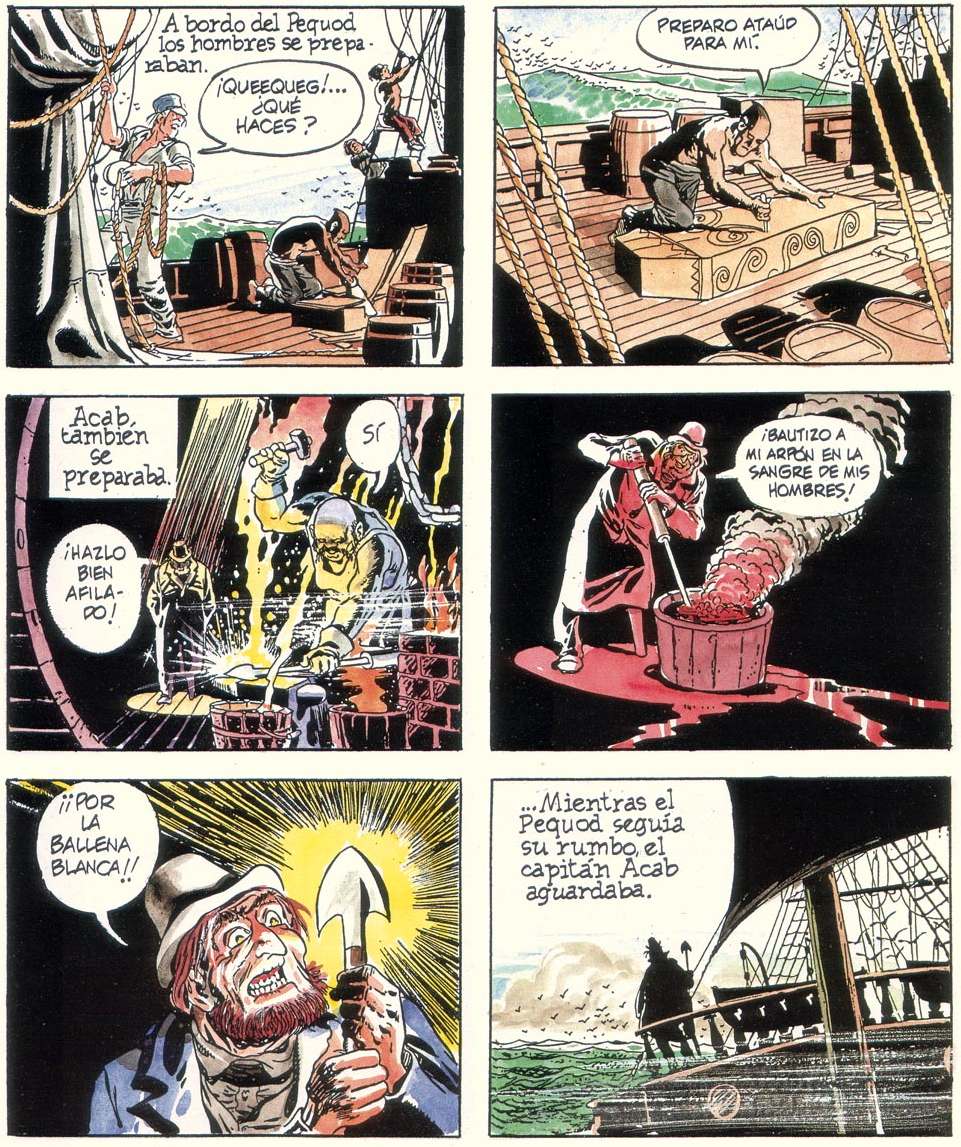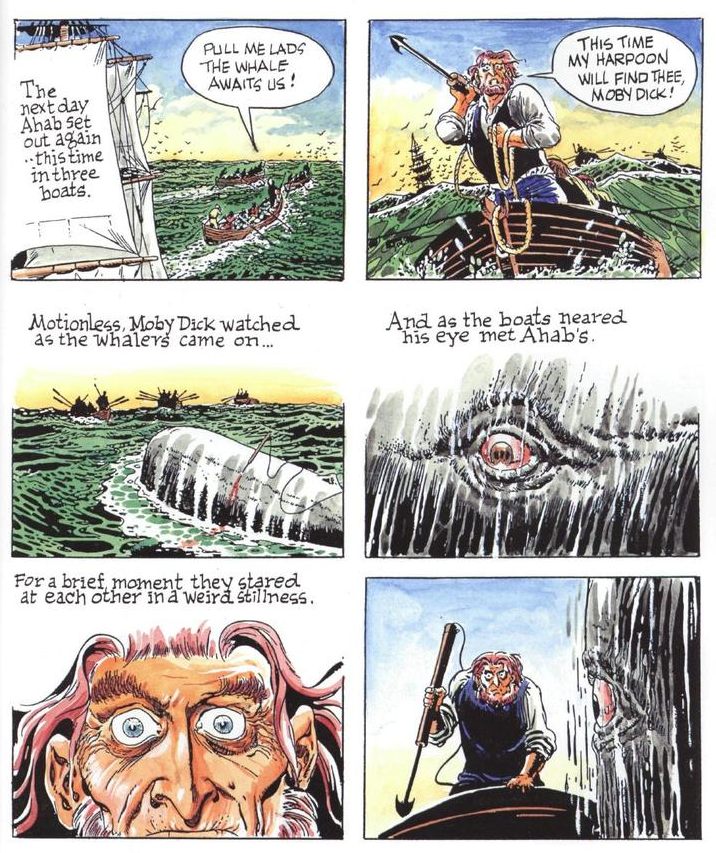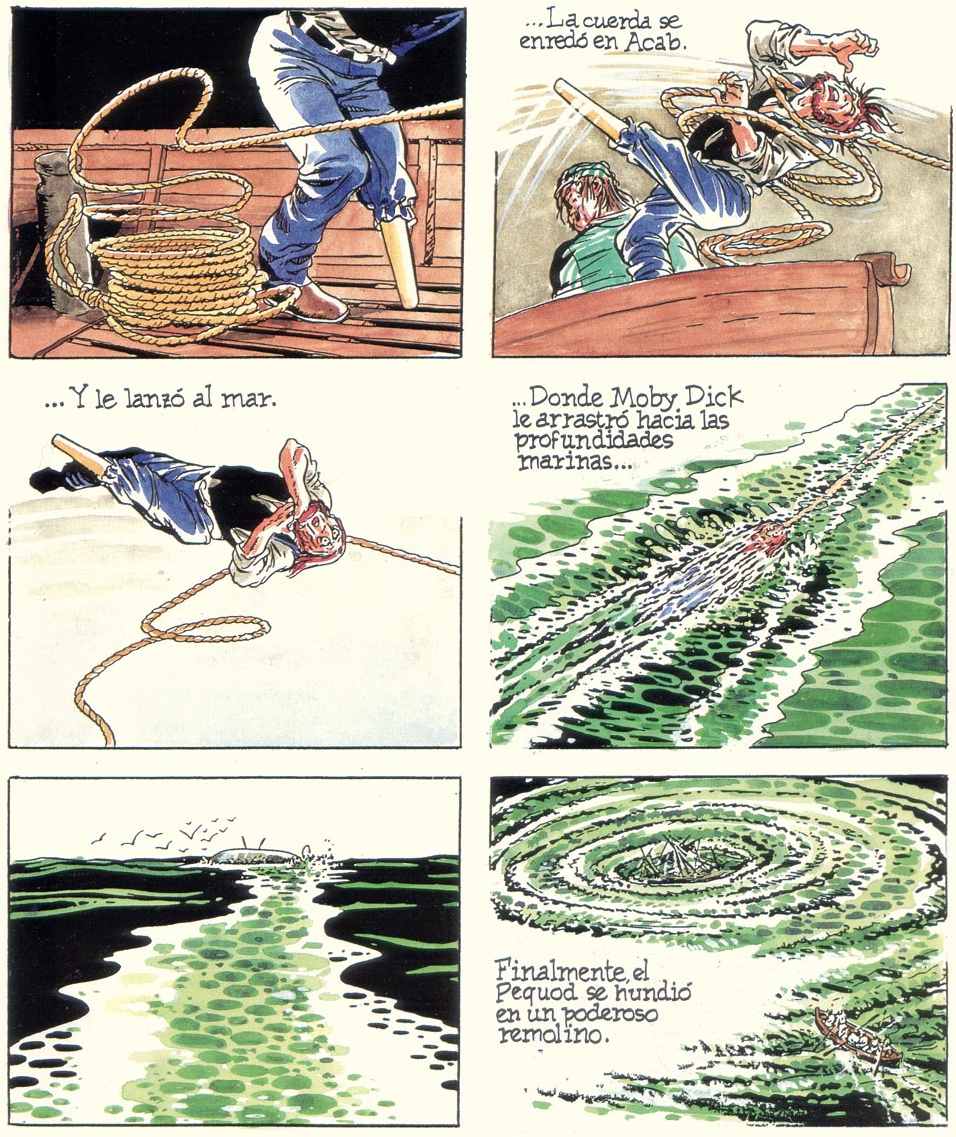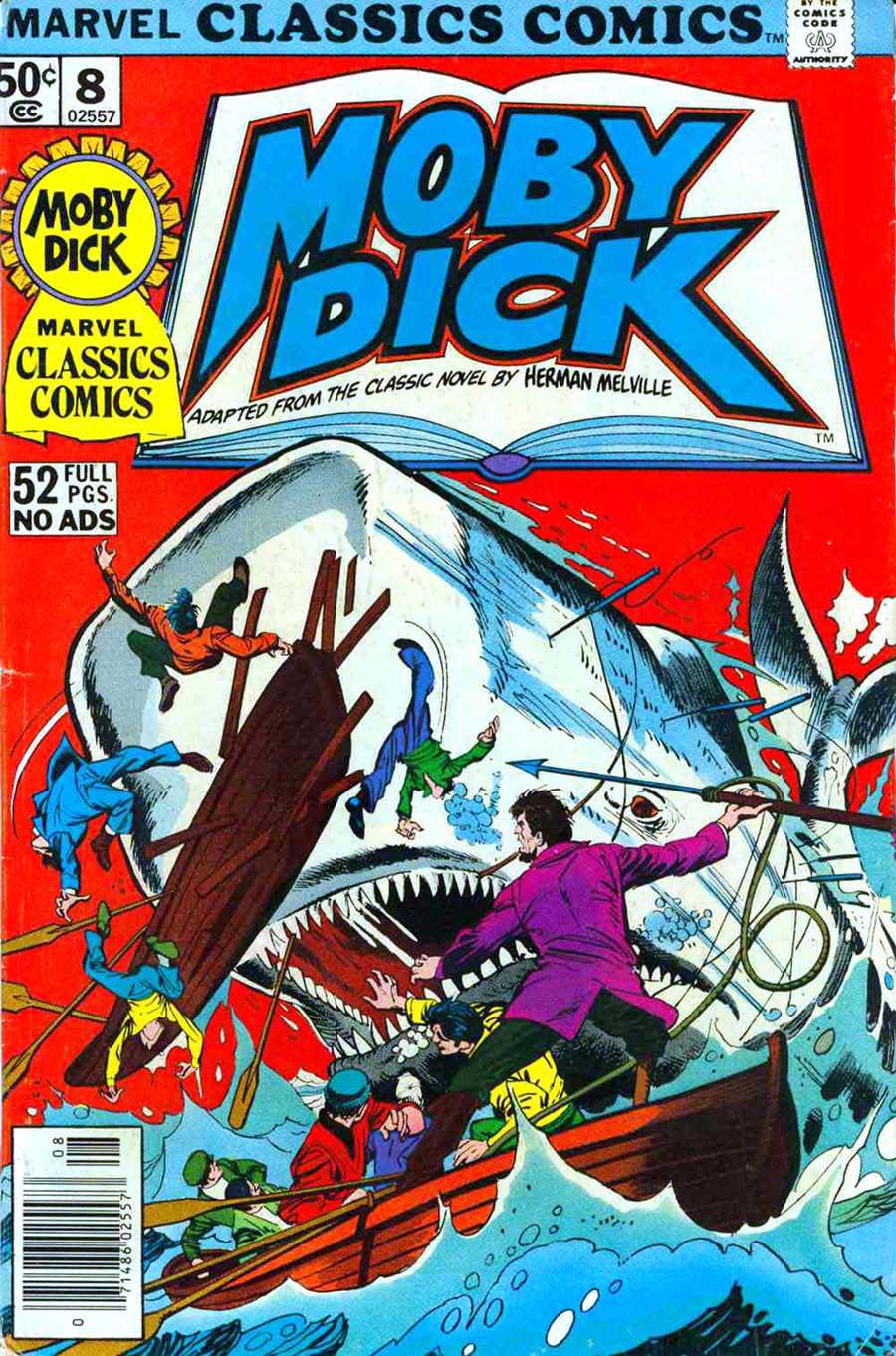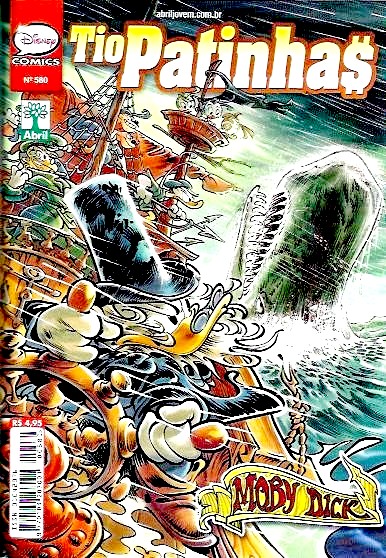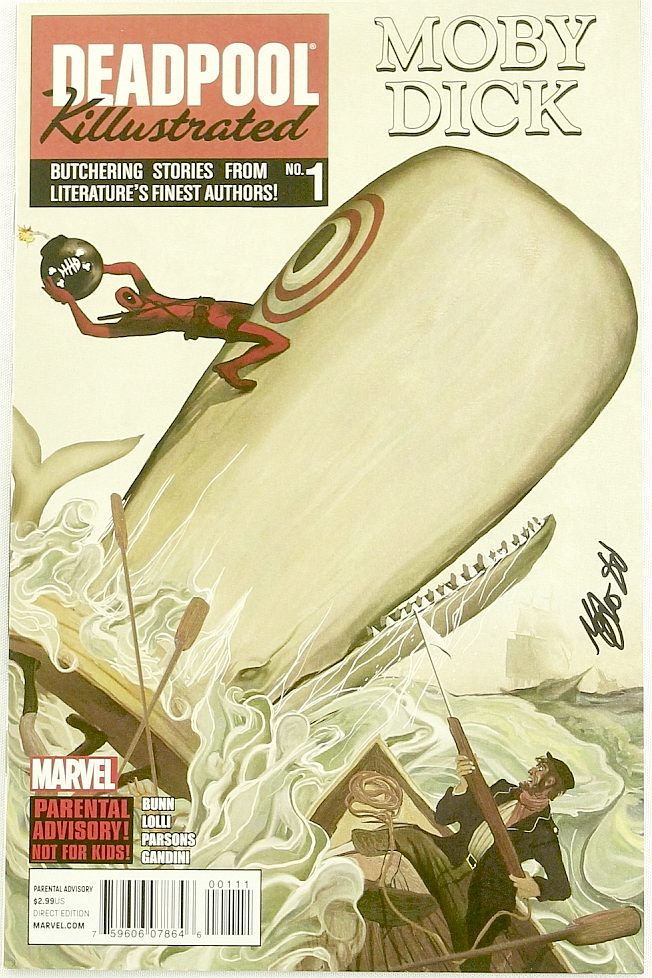|
WILL EISNER - MOBY DICK
Please use our A-Z INDEX to navigate this site
|
|
COVER ART - The front cover of Will Eisner's illustrated re-telling of Herman Melville's Moby-Dick.
William Erwin Eisner (March 6, 1917 – January 3, 2005) was an American cartoonist, writer, and entrepreneur. He was one of the earliest cartoonists to work in the American comic book industry, and his series The Spirit (1940–1952) was noted for its experiments in content and form. In 1978, he popularized the term "graphic novel" with the publication of his book A Contract with God. He was an early contributor to formal comics studies with his book Comics and Sequential Art (1985). The Eisner Award was named in his honor, and is given to recognize achievements each year in the comics medium; he was one of the three inaugural inductees to the Will Eisner Comic Book Hall of Fame.
We are mostly interested in Will's work because of his adaptation of Herman Melville's classic tale of a giant albino whale called Moby Dick, that was translated into several languages.
WILL'S CAREER
In the late 1970s, Eisner turned his attention to longer storytelling forms. A Contract with God, and Other Tenement Stories (Baronet Books, October 1978) is an early example of an American graphic novel, combining thematically linked short stories into a single square-bound volume. Eisner continued with a string of graphic novels that tell the history of New York's immigrant communities, particularly Jews, including The Building, A Life Force, Dropsie Avenue and To the Heart of the Storm. He continued producing new books into his seventies and eighties, at an average rate of nearly one a year. Each of these books was done twice — once as a rough version to show editor Dave Schreiner, then as a second, finished version incorporating suggested changes.
TEACHING
In his later years especially, Eisner was a frequent lecturer about the craft and uses of sequential art. He taught at the School of Visual Arts in New York City, where he published Will Eisner's Gallery, a collection of work by his students and wrote two books based on these lectures, Comics and Sequential Art and Graphic Storytelling and Visual Narrative, which are widely used by students of cartooning. In 2002, Eisner participated in the Will Eisner Symposium of the 2002 University of Florida Conference on Comics and Graphic Novels.
Each year following Comic-Con, nominated and award-winning titles are donated to the library's Special Collections and Archives and made available to researchers and visitors. Approximately 1,000 comic books, graphic novels, archival editions, scholarly titles, and journals are included in the VCU library's expansive Comic Arts Collection.
Marvel illustrated Moby-Dick in a series, then gave Deadpool a shot. Even Disney comics had a go - each appealing to a different age group, but all based on the Herman Melville classic. Kulo-Luna is also based on the fact that a large enough whale can sink a small ship, given the impetus. The difference is, that Kulo-Luna is set in the future, and is an original tale based around climate and plastic issues.
Moby-Dick was based on the sinking of the Essex in 1820 and another real whale that sank around 20 ships (1838), called Mocha-Dick.
Please use our A-Z INDEX to navigate this site
|
|
|
This website is Copyright © 2020 Cleaner Ocean Foundation Ltd and Jameson Hunter Ltd
|
